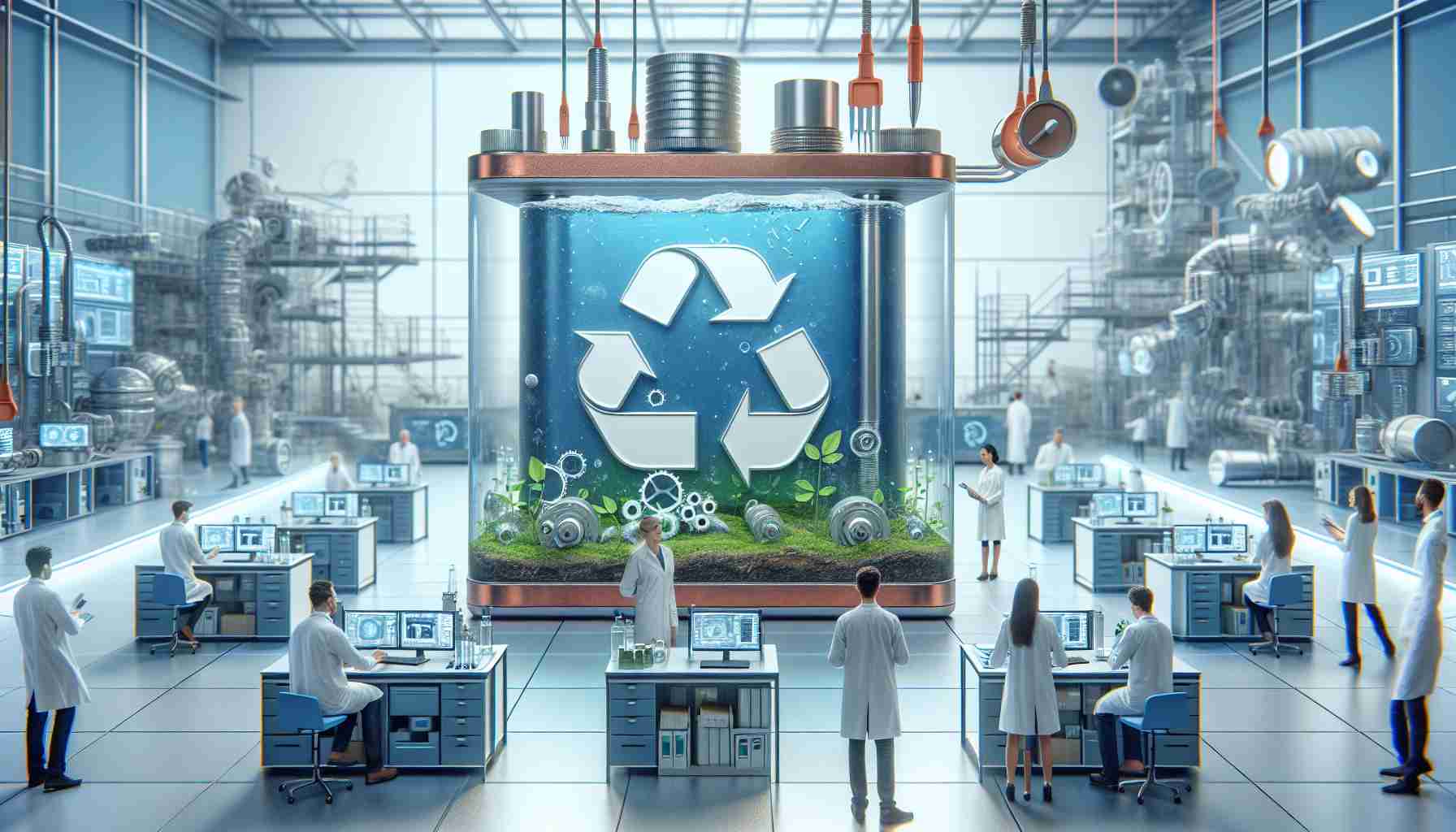A groundbreaking discovery by researchers led by RMIT University has revolutionized the world of energy storage. In their latest development, they have created recyclable “water batteries” that provide a safe and efficient alternative to traditional lithium-ion batteries.
Lead researcher Distinguished Professor Tianyi Ma explained that their invention, known as aqueous metal-ion batteries or water batteries, utilizes water as a replacement for organic electrolytes. This innovative approach eliminates the risk of fire or explosion that is associated with lithium-ion batteries, making them much safer for widespread use.
Aside from their improved safety features, these water batteries also possess several other advantages. They are designed using abundant and inexpensive materials such as magnesium and zinc, reducing manufacturing costs and environmental risks. Furthermore, the simplicity of the manufacturing process allows for mass production, making these batteries a viable choice for large-scale grid energy storage.
One of the key challenges that the team has successfully overcome is the growth of disruptive dendrites. These spiky metallic formations can cause short circuits and other serious faults in batteries. By coating the affected battery parts with a metal, the researchers have effectively mitigated this issue, ensuring the longevity and reliability of their water batteries.
In addition to tackling technological challenges, the team has conducted numerous peer-reviewed studies to enhance the energy storage capacity and lifespan of their batteries. Through continuous research and development, they aim to further improve the performance and overall potential of their invention.
With the creation of these recyclable water batteries, the team has not only provided a safer alternative for energy storage but has also addressed the challenges associated with end-of-life disposal. The batteries can be easily disassembled, and their materials can be reused or recycled, contributing to a more sustainable and environmentally friendly approach to energy storage.
As the demand for grid energy storage continues to rise, these water batteries offer a promising solution that combines safety, efficiency, and sustainability. With ongoing advancements in the field of aqueous energy storage devices, we can expect to witness a significant shift in the way we store and utilize energy in the future.
FAQ:
1. What is the revolutionary discovery made by researchers from RMIT University?
– The researchers have created recyclable “water batteries” that serve as a safe and efficient alternative to traditional lithium-ion batteries.
2. How do water batteries differ from lithium-ion batteries in terms of safety?
– Water batteries utilize water as a replacement for organic electrolytes, eliminating the risk of fire or explosion associated with lithium-ion batteries.
3. What advantages do water batteries possess?
– Water batteries are made using abundant and inexpensive materials like magnesium and zinc, reducing manufacturing costs and environmental risks. They can also be mass-produced, making them suitable for large-scale grid energy storage.
4. How has the research team addressed the growth of disruptive dendrites in water batteries?
– By coating the affected battery parts with a metal, the researchers have successfully mitigated the growth of disruptive dendrites, ensuring the longevity and reliability of the water batteries.
5. What measures have been taken to enhance the energy storage capacity and lifespan of water batteries?
– The research team has conducted numerous peer-reviewed studies to improve the performance and overall potential of the water batteries.
6. How do water batteries contribute to a more sustainable approach to energy storage?
– The batteries can be easily disassembled, and their materials can be reused or recycled, reducing waste and promoting environmental sustainability.
Key Terms:
– Aqueous metal-ion batteries: Also known as water batteries, these are energy storage devices that utilize water as a replacement for organic electrolytes.
– Lithium-ion batteries: Traditional batteries that use lithium as one of the active materials in the electrochemical reaction.
Related Links:
– RMIT University: The official website of RMIT University, where more information about the research and other projects can be found.
– gridstorage.abc: A reliable source for further understanding grid energy storage technologies and solutions.
The source of the article is from the blog regiozottegem.be
